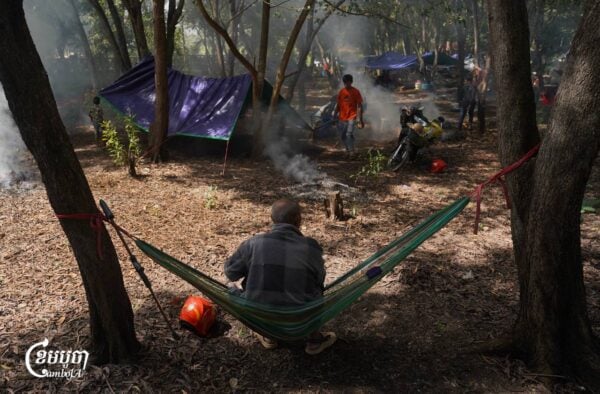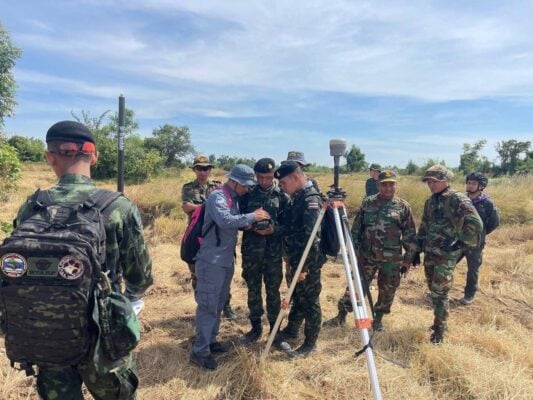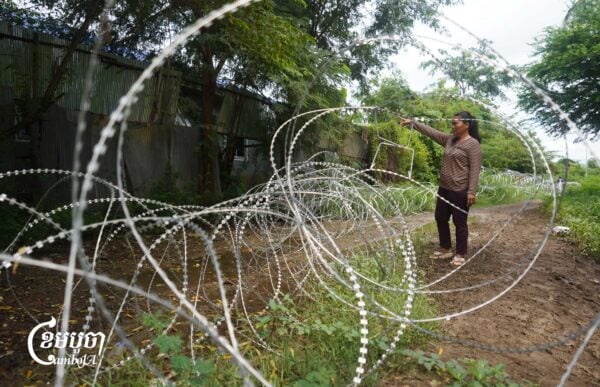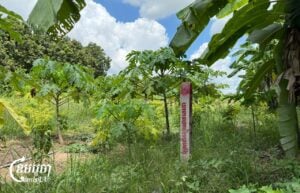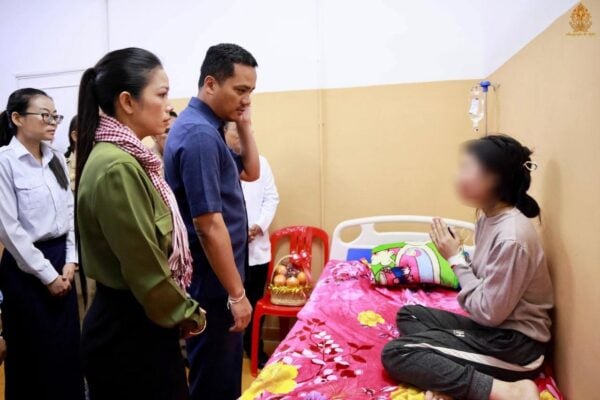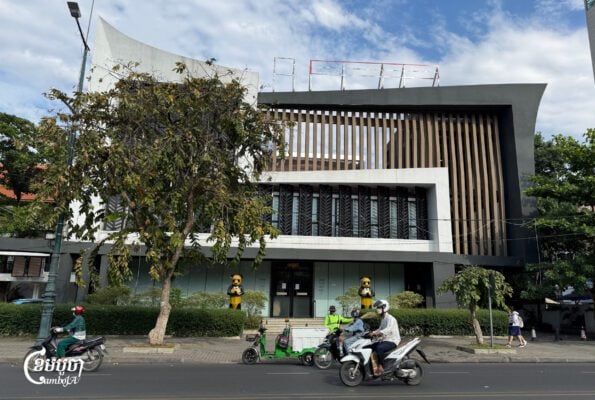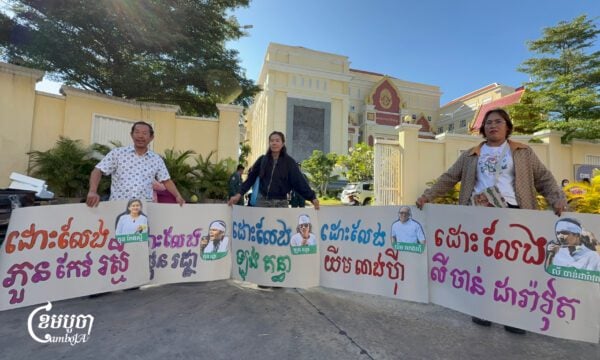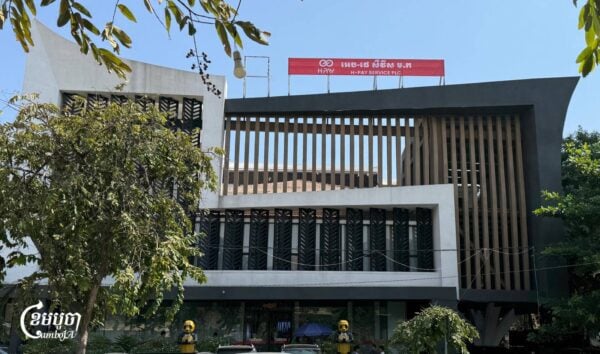Listen to the audio version of this article (generated by AI).
Cambodia’s ties with the U.S. have grown closer under the Trump administration, unlike during Joe Biden’s term when Washington pressured Phnom Penh to promote democracy and human rights. But analysts opined that the closeness may be less about genuine partnership, and that Trump’s foreign policy on pragmatism in foreign policy may not last.
Recently, the U.S. officials repeatedly signaled a desire to re-engage Cambodia as a potential partner in the Indo-Pacific. A State Department spokesperson told international media that the U.S. aims to improve Cambodia’s investment climate and international standing, including dismantling online scam operations targeting Americans, ending politically-motivated prosecutions, and allowing independent media to operate freely.
The shift comes after a turbulent period in bilateral trade. In April, the Trump administration imposed a 49% tariff on Cambodian goods—the second-highest levy—accusing Cambodia of serving as a major transshipment hub for Chinese products to evade U.S. tariffs. The U.S. has long been Cambodia’s largest export market, particularly for garments, footwear, and electrical machinery.
However, the tone changed dramatically in the following months. In August, President Donald Trump announced a reduced 19% tariff on Cambodian imports, followed by a bilateral trade deal in October on the sidelines of the ASEAN Summit in Malaysia. As part of the agreement, Cambodia committed to applying zero tariffs on U.S. goods.
The U.S. president also intervened to end the five-day clash between Cambodia and Thailand in July leading to the Peace Agreement. Prime Minister Hun Manet and senior officials publicly praised him for his role in resolving the deadly border conflict, culminating in the nomination of Trump for the Nobel Peace Prize.
On November 6, U.S Secretary of State Marco Rubio lifted the long-standing arms embargo on Cambodia, citing the country’s “diligent pursuit of peace and security”, renewed cooperation on defense and countering transnational crime. Both sides also agreed to resume the joint military exercise, Angkor Sentinel, after it was halted in 2017.
The new efforts are in stark contrast to the Biden administration. Relations were fraught at the time, with Washington repeatedly raising concerns about human rights abuses, the crackdown on the media, and Cambodia’s military ties with China. Days after the July election, when Hun Sen handed power to his son Hun Manet, the Biden administration said the polls were not free and fair, while announcing new visa and funding restrictions.
During Biden’s term, tycoon Ly Yong Phat was also sanctioned for his alleged role in human trafficking and online scam networks. Washington also expressed alarm over China’s expansion of Ream Naval Base, fearing that it would host a Chinese military facility.
Independent political analyst Ly Sreysrors said Cambodia’s strategic geography has long been seen as “valuable” to the U.S and China. She said Trump’s intervention in the recent border dispute shows renewed attention on Cambodia, but largely because the president places less emphasis on democracy than previous U.S. administrations.
“When the U.S. does not focus on democratic values, Cambodia and the new administration seem to get along easily,” she said. “This dynamic has allowed both sides to forge a closer friendship.”
However, she emphasized that U.S. engagement remains driven by American interests, not by Cambodia’s importance as a strategic partner.
Sreysrors said that while the relations appear cordial, they are unlikely to weaken Cambodia’s long-standing ties with China. That said, regional dynamics are also shifting, she noted, pointing to Thailand, which is traditionally close to the U.S., but whose King recently visited China.
Political commentator Ro Vannak told CamboJA News that Cambodia’s foreign policy with the US is “up and down”, referring to Biden and Trump’s policies. But, the policies are in the context of decreasing China’s influence in the region and especially in Cambodia, so the U.S. might treat Cambodia as a country of geopolitical importance but “not a strategic partner or true ally”.
“Trump is using pragmatism in foreign policy with Cambodia, but it is not sustainable in the long run because he is only thinking about U.S. interests [containment of Chinese influence]. So when Cambodia benefits the U.S., Trump will cooperate,” Vannak said.
However, he remarked, the difference between the foreign policies was that Biden’s administration focused on expanding and strengthening the U.S. presence and power through the implementation of “liberal hegemony foreign policy”, meaning it tried to promote liberal institutions that refer to multilateral free trade and appreciation of human rights and democracy.
On the other hand, he said, Trump “does not value” democracy and human rights, rather economic interests in the region and the benefits and prestige of Cambodia to the U.S., especially to Trump himself. Hence, why the Cambodian government is “trying to please” Trump to the point of nominating him for the Nobel Peace Prize.
“If we really look at it, Trump is the one who caused the problems of world order, but in the end he seems to be praised for trying to find world peace,” he added.
In line with Trump’s current policies, Vannak viewed that the U.S. would cooperate with Cambodia to reap the benefits, while human rights and democracy might be an agenda in the next presidential term.
But to ensure good cooperation with the U.S., Cambodia should fully embrace democracy and uphold rule of law and political integrity, and fight corruption and scams, he advised.
Government spokesperson Pen Bona declined to comment, referring CamboJA News to Article 53 of the Constitution, which states that Cambodia pursues a policy of “permanent neutrality and non-alignment”.



